Growing declarations of a climate emergency demand that Canadians join all global citizens in a society-wide transformation. Yet, we humans resist change. Our way of life – as individuals, businesses, and governments – is deeply entrenched and therefore extremely difficult to shift.
It’s no surprise that humans are the problem. That’s why research and teaching in the humanities, social sciences and creative arts play a critical role in addressing the myriad issues connected to climate. Current work in the Faculty of Arts is deepening understanding and ideas about the complex web of personal, social, cultural and political factors that can work for or against the global climate crisis. Here are a few examples.
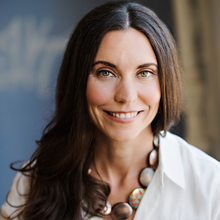 Moving to a fossil fuel-free future
Moving to a fossil fuel-free future
While the impacts of burning fossil fuels is clear, political science professor Angela Carter investigates how we might stop extracting them in the first place. She studies the rise of “keep it in the ground” movements and legislation, including the political conditions necessary to wind down fossil fuel extraction. Her work uncovers the tensions between environmental and community impacts versus economic imperatives. In 2019, Professor Carter played a key role in the City of Kitchener’s decision to declare a climate emergency when she identified the climate crisis impacts in Waterloo Region. She is also teaching this winter’s Global Engagement Seminar, “The Future of Nature.”
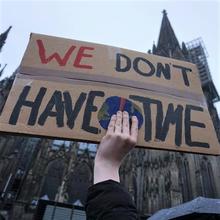 Shifting cultural norms and behaviours
Shifting cultural norms and behaviours
What’s behind our hesitancy to commit to real climate action? English professor Andrew McMurry, author of Entertaining Futility: Despair and Hope in the Time of Climate Change, examines how everyday habits of language, narrative and cultural tradition shape our beliefs and understanding about the environment – and can undermine or advance real action. And Imre Szeman, a professor in Communication Arts who works at the intersection of energy humanities, environmental studies, and cultural theory, explores in both his teaching and scholarship how humanists and artists help to shift our thoughts and actions by envisioning our lives and culture without fossil fuels.
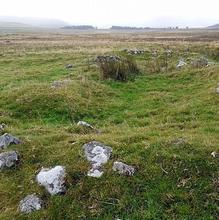 Unearthing medieval climate lessons
Unearthing medieval climate lessons
What can the site of a medieval village tell us about climate adaptation? History professor Steven Bednarski leads a large international research project that will establish the first digital humanities lab for the study of historical climate and culture. This work builds on his team’s research into a lost medieval village in the south of England that holds lessons of human adaptation to climate change, and that will inform contemporary climate-culture interactions.
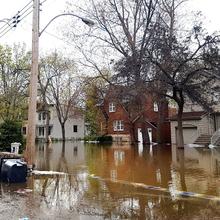 Improving climate risk management
Improving climate risk management
Municipalities across Canada face growing risks of flooding, wildfires, and other climate events. Daniel Henstra, a professor in political science, researches and recommends alternative policy approaches that authorities need for agile and effective responses to such climate risks. Collaborating with Jason Thistlethwaite, professor of environmental studies, they offer solutions that optimze the networked relationships among politicians, public servants, and other stakeholders to protect residents by mitigating flood risk. Their policy framework promotes climate change adaptation and reduces economic vulnerability in towns and cities.
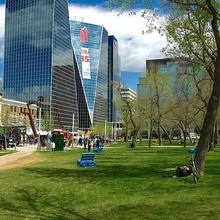 Greening city spaces needed more than ever
Greening city spaces needed more than ever
Good urban design is more than visually appealing, it’s good for our well-being and for promoting care for the environment. Research by PhD candidates Hanna Negami and Robin Mazumder – who work with psychology professor Colin Ellard in his Urban Realities Lab – published a study that found more green spaces in urban areas are associated with higher levels of happiness, greater trust of strangers, and greater environmental stewardship. Read more about their study.
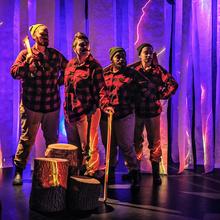 Enacting a cautionary tale
Enacting a cautionary tale
Imagine a world much like our own that is casually racing towards ecological disaster. Last year the Theatre and Performance program (Department of Communication Arts) presented Welcome to the Tree Museum – an original, multimedia performance that tells a fable of four siblings who grow up to witness the impending death of their childhood woodland. Quirky but with a serious message, the sold-out show aimed to incite action by driving home the point that we must save our environment from ourselves.
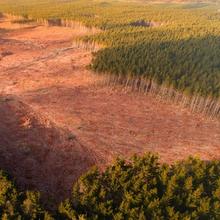 Interrogating the Anthropocene
Interrogating the Anthropocene
Senior undergraduates from all Waterloo faculties are working with experts to research and understand implications for the future of nature. The Global Engagement Seminar is offered by the Faculty of Arts with mentorship from distinguished Jarislowsky Fellows, which this winter includes Edward Burtynsky, the world-renowned photographer of industrial landscapes. On April 1 and 2, the Global Engagement Summit will be open to the public with a keynote address by Burtynsky and presentation of students’ projects that respond to the challenge we all face: The Future of Nature.
Top photo: On September 27, 2019, Waterloo students, faculty and staff joined regional community members for the Global Climate Strike march that began in the Arts Quad and made its way to a packed Waterloo Town Square. Photo courtesy of Peter Stirling, Faculty of Environment.







